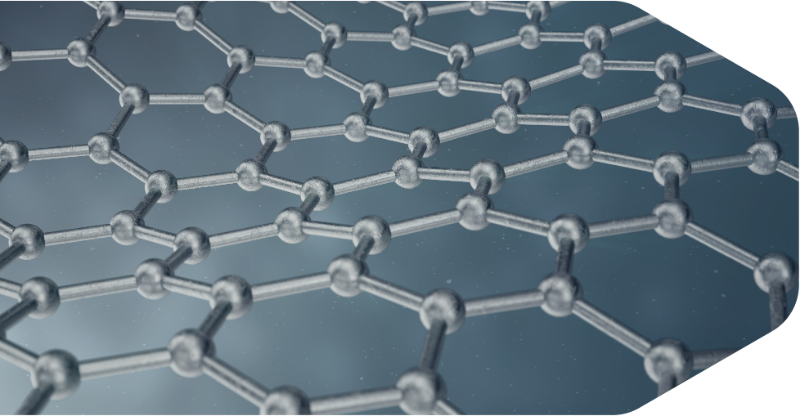
Graphene is known by its attributes and superlatives. The same can be said of Dr. Aruna Zhamu, co-founder of Global Graphene Group (G3):
Dr. Zhamu’s impact on the scientific community is significant. In addition to her achievements as an inventor, Dr. Zhamu led Global Graphene Group to become the world’s largest manufacturer of single-layer graphene oxide. She co-invented graphene thermal film, graphene-enabled sulfur cathode, high-capacity anodes and graphene supercapacitors.
“Supporting women in STEM (science, technology, engineering, mathematics) is very important to me,” said Dr. Zhamu, who holds a BS and PhD from Beijing University of Aeronautics & Astronautics, China. “Being a woman in science, I’ve found you need to be strong and confident in yourself to be successful. Then you can become a leader and truly make an impact.”
“It’s very important to me to support other women in science and support girls pursuing STEM education,” said Zhamu. “Female scientists have so much to offer our chosen fields of study, and we’ll continue to be a big part of the future in technology.”
Nixene Publishing was recently granted an interview with Dr. Zhamu. Many thanks to Amy Maggart, G3 Corporate Communications for facilitating the exchange of questions and answers with Debbie Nelson, Contributing Editor and Project Manager.
When did you know you wanted to be a scientist? What first inspired you?
“I have always been interested in science. Science is universal—it’s the same in all languages. And it has the power to change the world. I first was inspired by science because I was curious about UFOs and outer space. Neil Armstrong was my idol when I grew up.”
Has your fascination with space grown into adulthood? In a world where anything is possible, what would your ideal space-related graphene application be?
“The fascination has never left me, but I’ve been focusing more of my time on graphene’s everyday applications. Graphene could potentially be used in space-related applications as it has high electrical and thermal conductivity.”
At the time graphene was discovered, did you immediately want to study it? What intrigued you most when you decided to focus on graphene?
“I first started working with graphene in 2006. It intrigued me due to the numerous applications it has. The more I worked with it, the more I discovered its benefits for thermal management, energy solutions and mechanical strength. It’s truly limitless what graphene can do, and we’re still uncovering applications for it.”
Do you recall the first graphene application you investigated?
“Single-layer graphene thermal film, which can be used to dissipate heat in consumer electronic products.”
Do you have a way to relax and just explore scientific possibilities, like the Nobel prize winners did on Fridays? What do you enjoy to clear your head?
“I love gardening! I have been working on my home garden lately since we have been working from home due to the COVID-19 restrictions and the warmer weather. I also enjoy working in my yard. And I spend time with my German Shepard, Mr. Darcy. We take long walks and play. These activities help me clear my mind and unwind.”
Is there one particular discovery of yours that you are most proud of or excited about – or is it impossible to choose favorites?
“This is like asking someone to pick their favorite child. I love every small discovery we’ve made. There are still countless unknowns in the future for us to explore. That’s the best part of being a scientist.”
What advice would you give to the parent of a child who is interested in science?
“I would advise parents to really encourage their children to pursue their interest in science. There are many resources for parents to give their children experiences in science, even young children. Take the child to science museums geared towards children, like our nearby COSI (Center of Science and Industry) in Columbus, Ohio.”
“Parents can find child-friendly science activities online that they can do at home with household items. And there are so many different types of science that children can study – biology, chemistry, physics, etc. Science allows for a huge variety of career paths, typically with great benefits and pay. Science can be difficult to learn, but if a child has a passion for it, they can learn and excel.”
Is there anything you are working on that you might be able to share with us?
“My team and I are focused on our battery solutions. I’m the President of Global Graphene Group’s Honeycomb Battery Company, and we are seeing big opportunities in EV battery technology. We have several products that are being tested by third parties that will extend the life of an EV battery. Our products can make EV’s drive farther on a single charge, recharge much faster than they can today, and keep the battery safer. Our findings are very exciting and will make electric vehicles more advantageous for the general public to use going forward.”
Interview with Dr Aruna Zhamu – Downloadable .pdf to share. Promote women in STEM, compliments of Nixene Publishing.


© Copyright 2025 Nixene Publishing Privacy Policy Cookie Policy Website Design by Pivotal Marketing